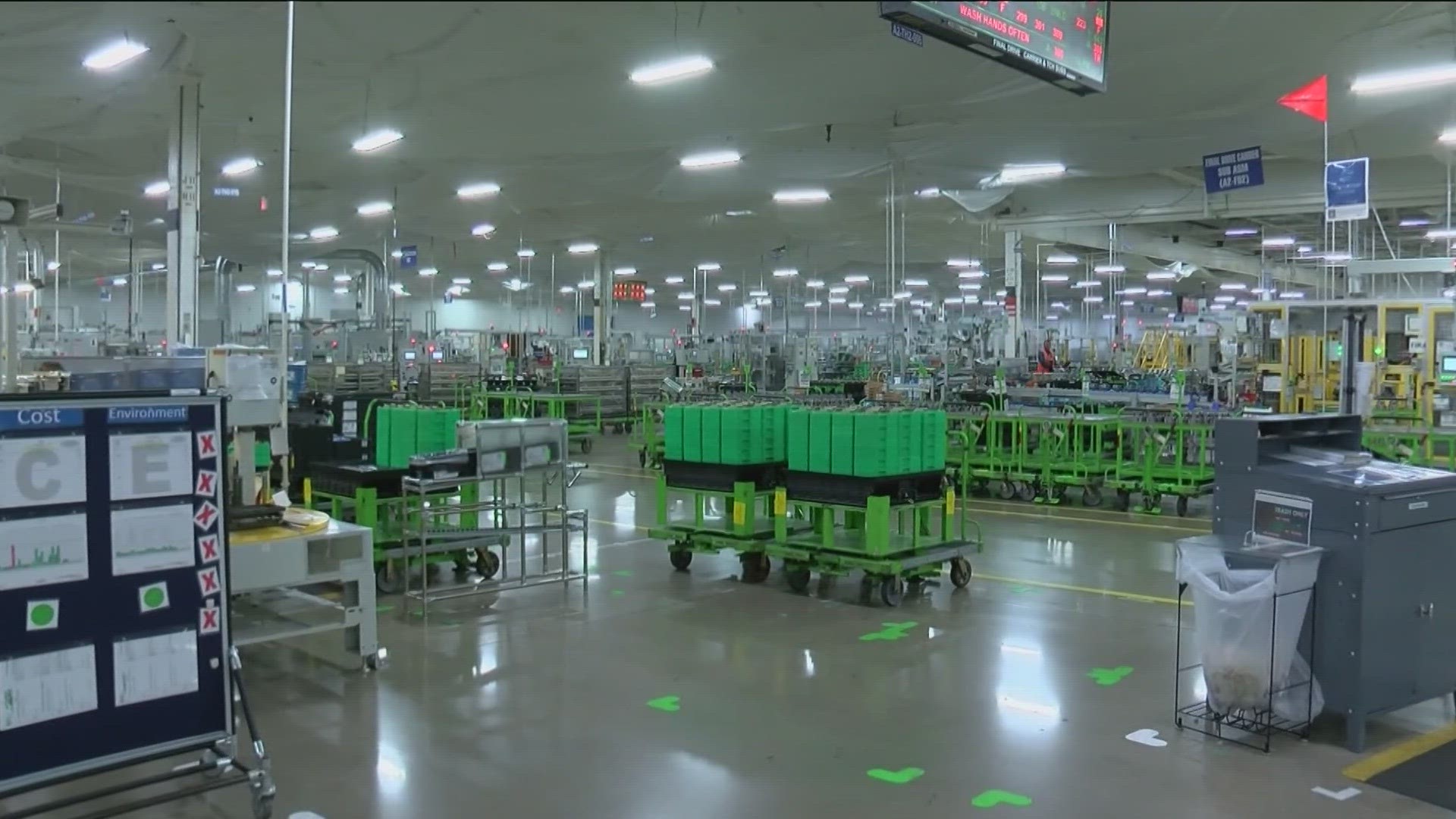TOLEDO, Ohio — Monday afternoon brought news of movement from the front of the United Autoworkers contract battle: UAW has lowered the demand for pay raises to the mid-30% range, according to reports, marking a willingness by UAW President Shawn Fain to compromise on one of the union's top demands.
But a compromise still doesn't mean there's any deal yet, and as the countdown draws closer to the Thursday night deadline, experts like the Anderson Economic Group warn there could be serious financial ramifications.
The consulting agency warned that if a strike does happen, the total economic losses to UAW workers, auto manufacturers, and the entire auto industry could result in $5 billion in losses after just 10 days.
RELATED: UAW's potential strike against Big 3 automakers could send inflated vehicle prices even higher
"What the car makers have to decide is 'okay, how much damage can I take from a strike versus a bad contract that may hobble me with high costs for very many years?' So they have to balance that out," said Jeff Gilbert, an auto reporter with WWJ radio out of Detroit.
Meanwhile, the UAW has its own balancing act, holding out for better contracts for their workers, while also asking them to live on nothing more than their $500 a week strike pay, and whatever savings they may have.
"Maybe they (UAW) don't pay their heating bills or their AC bills," University of Toledo economics chair David Black said. "If you don't have the income and you don't have the savings, you to make cuts, and it's painful for the families of these autoworkers."
The potential impact goes beyond just automakers and their workers. With the companies and workers both tightening their belts, their lack of spending could lead to an even bigger domino effect.
"Their spending is going to affect the other incomes of other people, and they're going to turn around and spend less as well," Black said. "So it could have a multiplier effect on the economy in the long run."
Such was the case in 2019 when Detroit was thrown into an economic recession after the GM strike. But this time, all three Detroit automakers are involved; something that has never happened before.
Anderson Economic predicts the Motor City and surrounding communities could be hit even harder and at an even quicker pace.
But both experts WTOL 11 spoke with are confident: it's too expensive for both sides to let a potential strike become a prolonged battle.
"Both sides are going to give a little bit, and once both sides feel the pain, they will have an incentive to do that," Black said.
Stellantis said Monday that weekend negotiations with the UAW were productive, reaching tentative agreements with the UAW on health and safety measures.
However, other parts of the deal remain unresolved.

